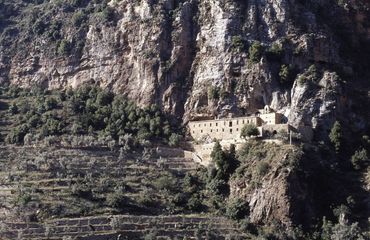São Paulo – Studying facts of world history by focusing on events that took place in Lebanese territory is the goal of Study Abroad in Lebanon (Sail), a program offered by the Cedars Institute – a local cultural organization – in collaboration with Notre Dame University-Louaize (NDU). The short-term course’s program was created by Lebanese and Brazilian professors.
“It’s a course in world history viewed through the eyes of Lebanon. We teach lessons on the facts that changed the world, in the places where they took place,” said NDU professor and Cedars Institute CEO Edward Alam. Subjects like the conquests of Macedonia’s king Alexander, the Great, the history of the Phoenicians and of the Roman temples will be covered.
According to Alam, the idea for the course came up in a conversation with fellow NDU professor Yousef Rahme. “Many world history events happened in Lebanon, and we realized that since the country is so small, it would be easy to cover these events in their actual sites in about 12 days,” he says.
The course is available in custom-made form, meaning it’s adapted to each student group. Since its inception in 2014, it has welcomed students from Nigeria, Ukraine, and Brazil. “The books and credits are customized, in case the students are from a university. In 2016, we had a group of students from the Federal University of São Paulo (Unifesp),” Alam reveals.
The groups from Brazil and Nigeria were made of students, while the one from Ukraine comprised university managers. Alam explains that the course is open to anyone who’s interested. In the case of Brazil, for instance, he encourages journalists to join, adding that classes can be taught by the renowned writer and journalist Robert Fisk, who’s his friend.
The course can last 10 to 15 days, and classes can be scheduled for the June-January period. Two Brazilian professors are involved and teach some of the classes – Jamil Iskandar, of Unifesp, and Mona Hawi, of the University of São Paulo (USP).
The partnership with Brazilian universities also led to the publishing of a book, Dialogue of Civilizations, which deals with the importance of dialogue between different peoples to promote shared values. It was released on May 25 at São Paulo’s Mário de Andrade library.
Prospective students are required to speak and write fluent English. According to Alam, each class preferably comprises up to 12 students. Student groups are required to arrange their trips at least one month ahead of time.
The final price of the trip varies depending on course duration. The daily cost per person is USD 190. The amount includes classes, accommodation, meals, transportation, learning material and tickets to the sites that will be visited during the course.
Those looking to form a group can get in touch with Alam at ealam@ndu.edu.lb. In Brazil, the course relies on promotional support from the Arab Brazilian Chamber of Commerce.
*Translated by Gabriel Pomerancblum




